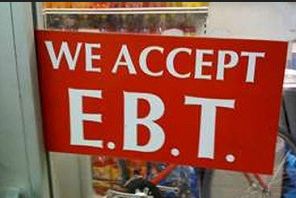Hands off: Taxpayers can’t check SNAP expenditures

EBT: State and federal officials say the Virginians who foot food stamp bills don’t have the right to review where they money is spent.
By Kathryn Watson | Watchdog.org, Virginia Bureau
ALEXANDRIA, Va. — American taxpayers spent $76 billion on food stamp programs in fiscal 2013, and more than one in 10 Virginians is enrolled.
But any transaction data on what people are buying with Supplemental Nutrition Assistance Program dollars — or even how much individual retailers are getting in payments from the feds — is off-limits to the taxpayers footing the bill.
In mid-January, Watchdog.org filed a request to the Virginia’s Department of Social Services for the date, time, amount and location of EBT card transactions in Richmond over a two-month period.
We made the request under the Freedom of Information Act and requested no personal data for the EBT beneficiaries.
But federal officials with the USDA’s Food and Nutrition Service, as well as state officials via emails and phone, said the information can’t be disclosed under law.
They say SNAP data is protected by a FOIA exemption, and disclosing the data could result in fines and imprisonment for any government official who does it. Retailer information is protected entirely by law, they say.
“With respect to privacy laws, if you’re talking about an individual, but the food stamp regulations say that you’re not allowed to provide that information, very clearly,” said Margarita Maisterrena, public affairs director for the USDA’s Food and Nutrition Service for the mid-Atlantic region. “An aggregate amount, yeah, for the city of Richmond, we could give it to you. But the law says that if I, for example, were to provide you with information by address and in such detail, I could go to jail. … It’s in the act. It’s very clear.”
That interpretation is up for debate.
The U.S. Eighth Circuit Court of Appeals last week ruled in favor of South Dakota’s Argus Leader newspaper, saying the USDA’s argument that a federal law protecting retailer applications does not mean federal payment data to those retailers is also protected.
Reporters, under the same federal law, have managed to get that transaction data in states where EBT cards are used for SNAP and Temporary Assistance for Needy Families benefits. The reporters found transactions at places such as Disneyworld and strip clubs.
SNAP benefits, distributed on EBT cards, have more safeguards in place than TANF benefits, which are handed out via direct deposit and debit cards. SNAP benefits can only be used at certain retailers, pre-selected by the federal government. But that doesn’t mean the system is foolproof.
Maisterrena said she had “no idea” why reporters in other states have been able to access the data.
“As far as I’m concerned, it’s not legal to do so,” she said.
Watchdog.org has now re-filed a slightly revised FOIA request with both the state’s Department of Social Services and the USDA’s Food and Nutrition Service.
SNAP records aren’t the only entitlement transaction data unavailable to the public.
Last week, Watchdog.org published a report showing that, even though purchases at places such as strip clubs and casinos are illegal with TANF benefits, the state has no way to track transaction data, audit it, release it to the public or punish offenders.
Rachel Sheffield, a welfare policy analyst with the conservative Heritage Foundation who supports work requirements for food stamps, said the process should be more open to the people who pay for it.
“To me, it makes sense that you would want some type of transparency so that it’s not just the federal government holding all the information and saying here’s what’s going on without any type of oversight of that,” Sheffield said.
— Kathryn Watson is an investigative reporter with Watchdog.org’s Virginia Bureau, and can be reached at kwatson@watchdog.org.
The post Hands off: Taxpayers can’t check SNAP expenditures appeared first on Watchdog.org.







